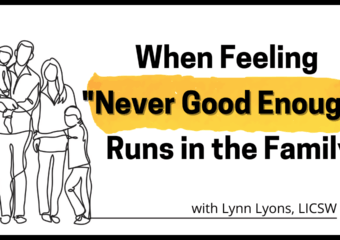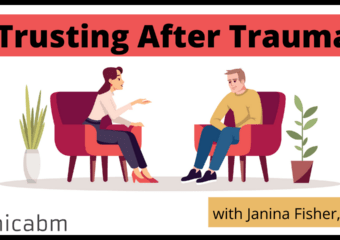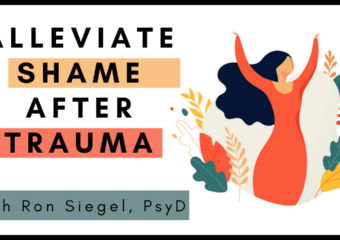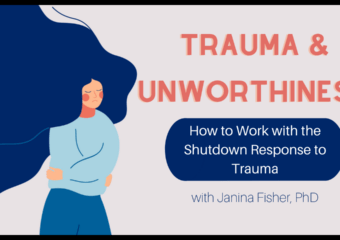Many times, when a client reports feeling unworthy, they may be able to pinpoint specific instances when they received messages that they weren’t good enough. But there are also indirect ways that this message can be conveyed and passed across generations – even in loving, connected families. In the video below, Lynn Lyons, LICSW, will […]
When Trauma Keeps a Patient from Trusting Their Practitioner, with Janina Fisher, PhD
As practitioners, we know how important it is to build trust with clients. But when a patient has a trauma history, trust may not come easy – and rightfully so. So, how can we go about building healthy trust in the therapeutic relationship with these clients? In the video below, Janina Fisher, PhD, shares how […]
A Simple Metaphor to De-Shame a Client’s Trauma Response, with Ron Siegel, PsyD
After a traumatic event, a client might feel deeply ashamed by how they responded to the situation. Perhaps they froze and now blame themselves for not fighting back. Or, maybe they ran away, but now regret not standing up for themselves. As clinicians, we’re able to recognize that these reactions happen at the level of […]
Is Your Patient “Feeling” Unworthy? What May Be the Underlying Cause, with Janina Fisher, PhD
Trauma can leave a patient with a deep sense of unworthiness. On top of that, your client might even blame themselves for feeling this way. But as we know, there’s always a purpose behind a patient’s response to trauma. And sometimes, the challenge is getting your patient to see the wisdom behind their response – […]
A Three-Step Approach to Treating Trauma-Related Dissociation, with Thema Bryant, PhD
Dissociation can be tricky to spot. On top of that, it can look awfully similar to freeze or shutdown. And to complicate things further, a patient might dissociate when they’re in either one of those trauma responses. But being able to detect when a client is dissociating is critical for providing effective treatment. So in […]




